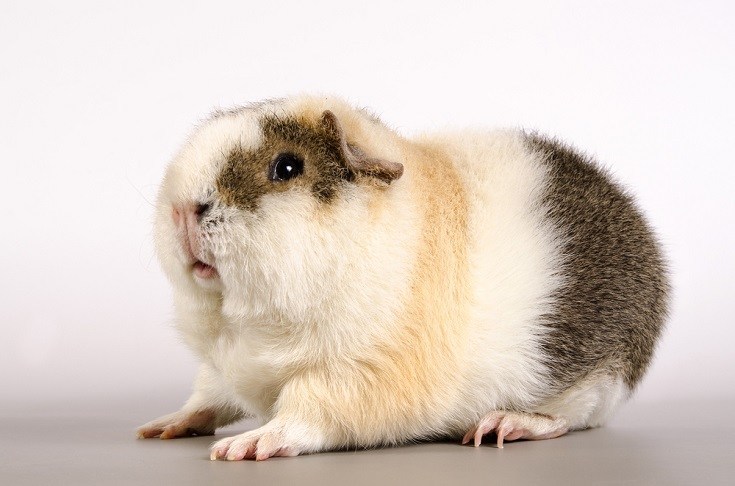

As much as people like to believe that guinea pigs are great “starter” pets for children, this is a common misconception because these animals are, in truth, fragile pets that need specific care requirements. This is just one of many myths that continue to be perpetuated about guineas, leading to improper care of these little animals.
That said, the fact that guinea pigs make wonderful pets is certainly not a myth! Still, proper care and understanding of these animals are vital to their health and well-being. In this article, we reveal the truth behind 10 of the most common guinea pig misconceptions and myths. Let’s get started!

10 Myths & Misconceptions About Guinea Pigs
1. Guinea pigs don’t need a large living space
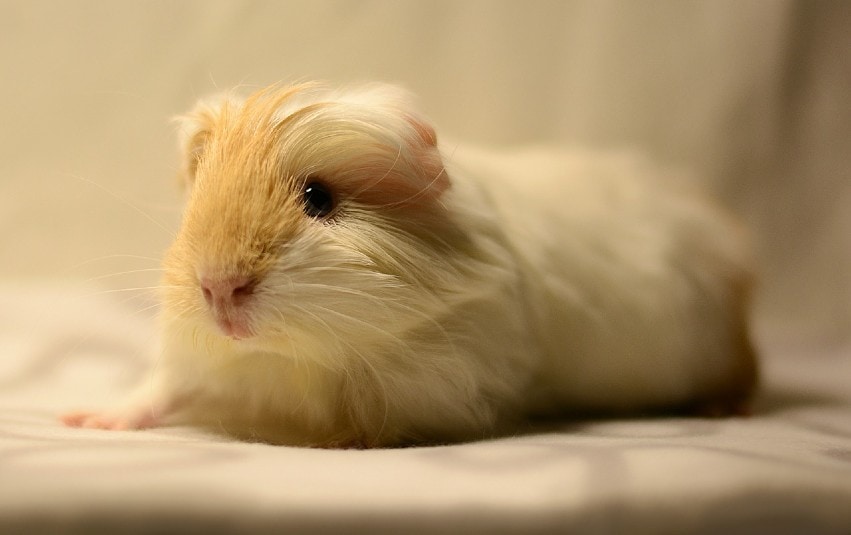
It’s easy to assume that the small cages at pet stores are adequate for small animals like guinea pigs, but this is simply not true. In the wild, guinea pigs inhabit large, grassy plains and are accustomed to having plenty of space to roam. Most pet stores recommend a cage of around 12×24 inches, but this is not large enough for even a single guinea.
Since Guineas are social animals that prefer to live in small groups, you should ideally keep a pair or more together. This will require a cage of at least 30×50 inches, but bigger is better.
2. They are low-maintenance pets
Owning any pet has differing levels of responsibility, and guineas are often thought of as easy, low-maintenance pets. While Guineas may be easier to look after than dogs because they don’t need daily walks nor cost as much to feed, they are still a large responsibility. Guinea pigs can quickly make a mess of their cage, spilling food and spreading droppings everywhere, and their cage will need daily cleaning to keep it sanitary. They also need plenty of hiding spots, chew toys, and exercise, all of which require regular daily maintenance.
3. Guinea pigs are shy and cannot be played with
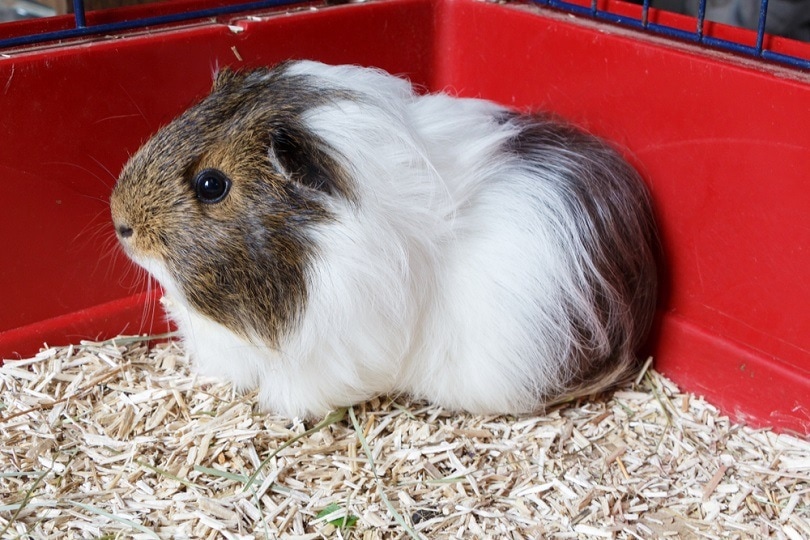
In the wild, guinea pigs are highly social animals, and in captivity, they are much the same once they become used to their owners. Guinea pigs are prey animals, and as such, handling can easily stress them out — if they are not handled gently or are handled too much. That said, with time and patience, they will bond strongly with their owners. They will happily spend time outside their cage and are a joy to play with without the need for much handling.
4. They are great “starter” pets
Guinea pigs are often among the first choices as starter pets for small children, but since these animals are so sensitive and fragile, this is a dangerous myth. While guineas will certainly teach children the value of responsibility and patience, kids are easily excited and will want nothing more than to hold and cuddle their new pet. Guineas are highly skittish and easily stressed, and they should not be handled regularly, especially by small children. That said, with the correct guidance and adult supervision, they can still make good pets for older children.
5. They cannot be spayed or neutered
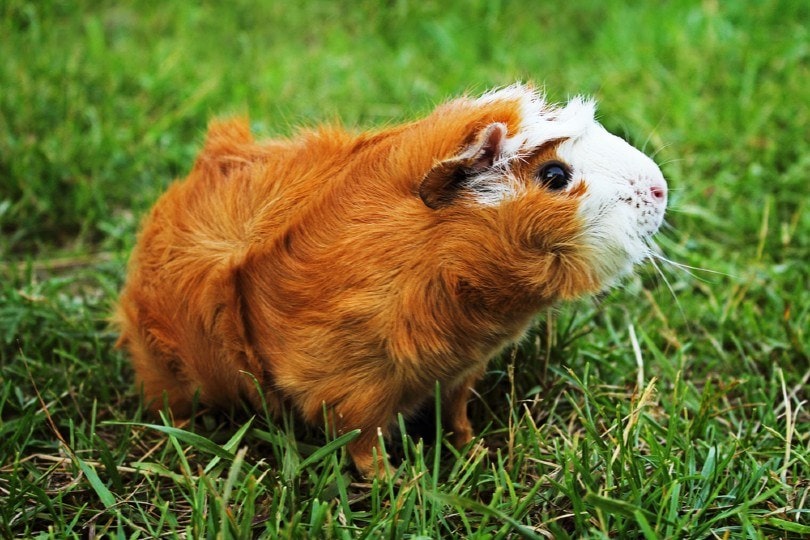
Breeding guinea pigs should be left to professionals, and as such, males and females living together should be desexed. There is a common myth that since guineas are so small, they cannot undergo this procedure. In truth, guineas are like any other mammal and can be spayed or neutered by a professional. Of course, just like any surgery, there is risk involved and the possibility of infections, but as long as the procedure is performed by a professional and you understand the post-surgery precautions, they are usually fine. Neutering is less invasive and thus safer than spaying, so it is the better option if you have the choice.
6. They have short lifespans
Many people confuse the lifespans of guinea pigs with other small mammal pets, like rats or hamsters, which is only around 3 years. Guinea pigs have far longer lifespans, though, especially if they are properly cared for, and on average, they can live for 5–7 years and often up to 10!
7. Male Guinea pigs cannot live together
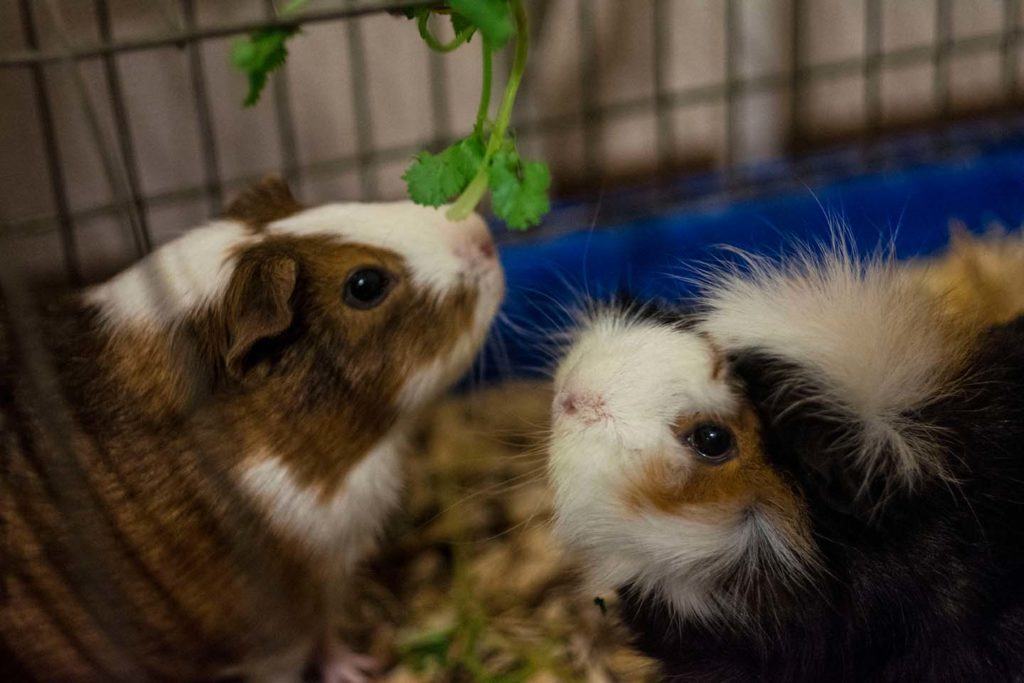
It’s a common myth that male guinea pigs cannot live together as they’ll fight each other. The truth is that two males or more can usually happily live in the same cage together, as long as there is not a female present in the same cage too. They’ll need to be introduced slowly and be provided with plenty of space, but without a female present, they are unlikely to fight.
8. They are happy to live alone
Guineas are highly social animals that live in small groups of up to 10 members in the wild. A guinea pig living alone will swiftly become lonely and depressed, even if they are given plenty of attention from their human owner. It’s best to keep guineas in pairs at least so they can keep each other company, and they’ll be even happier in groups.
9. Rabbits and Guinea pigs can live in the same cage
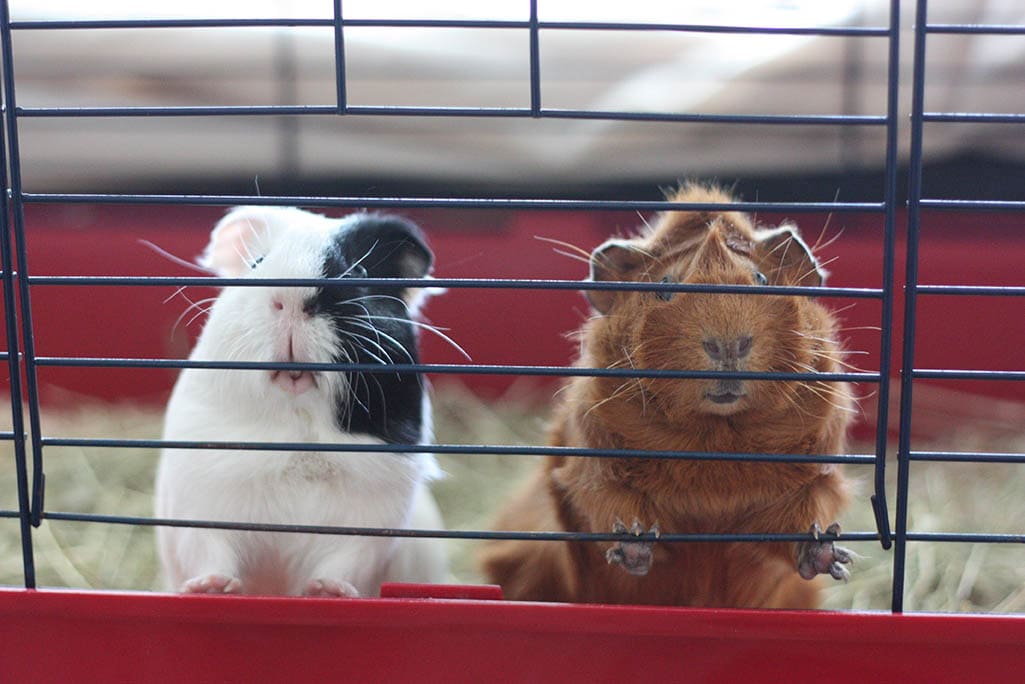
Since rabbits and Guinea pigs are both small mammals with somewhat similar housing requirements, people often assume that they can live together in the same cage. However, there are a few key differences that make them unsuitable housemates. Firstly, they have different diets, and eating one another’s food may result in nutrient deficiencies. Also, rabbits eat much more than guineas and may eat all your Guinea’s food without you realizing it. Rabbits are larger than Guineas and could potentially injure them accidentally.
10. A pair of Guineas won’t bond with humans
Many people keep guineas alone in a cage in fear that their guinea will not bond closely with them if they have a mate. This is simply not true, and a pair of guineas are just as likely to bond with a human as a single guinea is. Also, a guinea on their own will be unhappy, making them even less likely to play and bond with their owner.

Conclusion
Guinea pigs undoubtedly make great pets. With their docile temperaments and long lifespans, they are popular small pets for owners who cannot manage larger animals. They are still a large responsibility, though. Contrary to popular belief, they cannot happily live in tiny spaces, nor can these social creatures happily live alone. Hopefully, we’ve helped clear up a few of the common myths and misconceptions associated with Guineas, so you can cater to their needs more accurately.
Featured Image Credit: Chorch, Shutterstock

Nicole is the proud mom of Baby, a Burmese cat and Rosa, a New Zealand Huntaway. A Canadian expat, Nicole now lives on a lush forest property with her Kiwi husband in New Zealand. She has a strong love for all animals of all shapes and sizes (and particularly loves a good interspecies friendship) and wants to share her animal knowledge and other experts’ knowledge with pet lovers across the globe.






